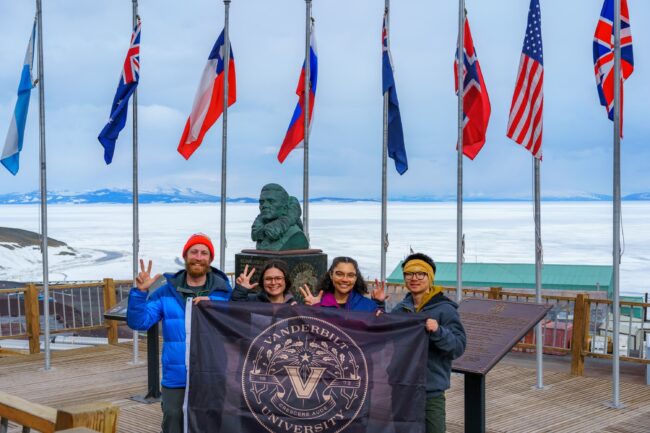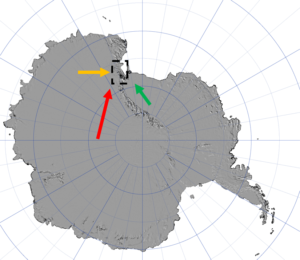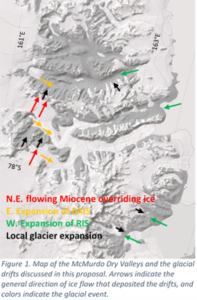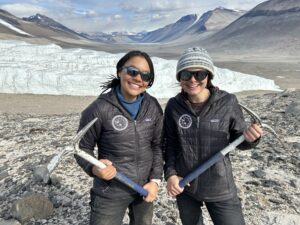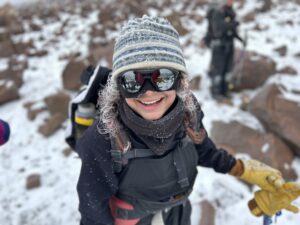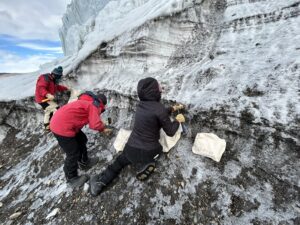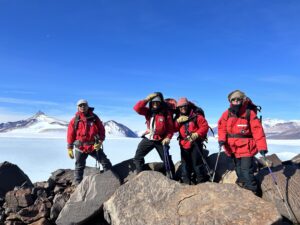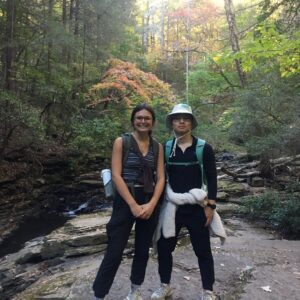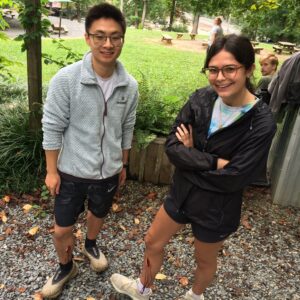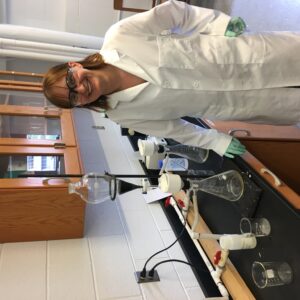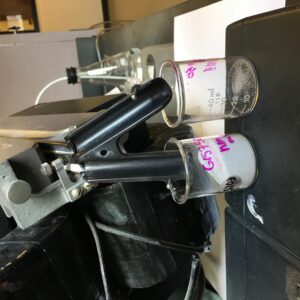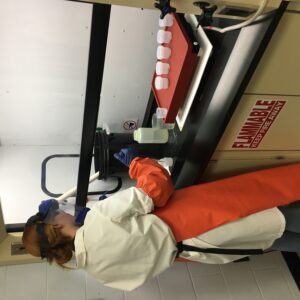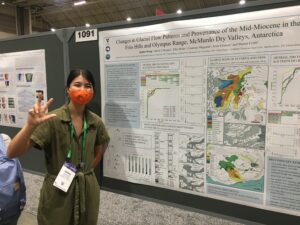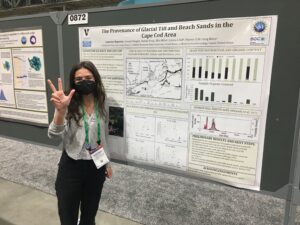Antarctica 2023
Applications to join the research team for field work in fall 2023 are now closed. Selections for the 2023 field team will be made soon.
This page will describe the project in Antarctica, and provide more details about the fieldwork in Antarctica and the expectations for students selected to join the research team for 2023-24.
Instructions for the application (Antarctica_Application_2023S) are found on the Antarctica page.
Project Goals: This project will utilize new techniques to ascertain the history of glacial ice flow in the McMurdo Dry Valleys of Antarctica (MDV). Deposits in these valleys preserve at least 15 million years of glacial history, which come from multiple glacial events and sources. We will spend about two months in Antarctica to sample these glacial deposits from a number of sites in the MDV. Back at Vanderbilt, we will perform uranium-lead radiometric dating of zircon sand grains from each sample, building up a library of age data acting as fingerprints for different glacial sources. With these data, we can reconstruct past ice sheet behavior in Antarctica and better inform how the ice sheet will influence future global climate change and sea level rise. This project is federally funded by the National Science Foundation and the U.S. Antarctic Program.
Fieldwork:
- The field team will consist of Dr. Dan Morgan, three undergraduate students, and one additional team member.
- Fieldwork for this project will occur from approximately October 30, 2023 – January 2, 2024.
- During the fieldwork, participants will be camping in extreme conditions in the McMurdo Dry Valleys for about five weeks.
- Temperatures are constantly below freezing at about 0 – 20°F, winds can be very strong, and the sun does not set.
- Days will consist of hiking on rocky terrain, digging to collect rock and sand samples, and mapping glacial deposits.
- Each person will have their own tent for sleeping, and we will have one large tent for cooking and office space.
- While camping, a satellite phone will allow brief phone calls home, but there is no internet access.
- For about two weeks before and one week after the field work we will stay at McMurdo Station in Antarctica. At McMurdo Station we will sleep in dorms, eat at a dining hall, and have limited access to internet.
- All members of the field team are required to receive medical clearance to participate in the field work by completing medical and dental exams, which are reviewed by the U.S. Antarctic Program. There is limited funding available to help cover the costs of medical exams and field gear, and participants may incur some costs associated with additional medical exams and personal field gear.
Project Timeline: Students selected for the field work will be expected to participate in the following:
Spring 2023
- Sophomores apply. Three students will be selected and notified.
- Prerequisite: An introductory Earth & Environmental Science Course (EES 1030, 1081, or 1510).
Summer 2023
- Complete the required physical and dental examination with your doctors.
- Be aware that some chronic conditions may require additional permission to travel and work in Antarctica, and that some medical conditions will exclude you from participation. If you have questions or concerns, please talk to Dr. Morgan before applying.
- Participate in physical training (strength, flexibility, and cardio).
- Optional summer research on campus.
Fall 2023: Junior Year
- Consider this a “study abroad” semester in Antarctica. You will register for specially designed EES courses that will end in October. We will be gone to the field from approximately October 30 – January 2.
- Students will take two EES classes that will run on an accelerated scheduled beginning in August and ending in October. Other Vanderbilt students are allowed to take these courses.
- EES 2220W History of Antarctica (HCA).
- EES 4440 Glacial Geology + EES 3865-99 Field Investigations (1 credit hour, includes a 5-day field trip to Colorado).
- Students will also enroll in:
- EES 3865-01 Field Investigations (3 credit hours). This accounts for 2-3 hours of meetings each week, academic/physical/mental/social preparation for the field work, and specific training sessions including weekend camping trips and wilderness first aid training.
- EES 3880 Internship Training (5 credit hours, P/F, for the field work) and EES 3883 Internship Readings and research (3 credit hours, for the reflection paper after the field work).
- Students will be required to participate on weekend camping trips and training sessions, including wilderness first aid training.
- Students will be required to maintain physical activity through Group Fitness classes at the Rec (3-4/week) and cardio training.
Spring 2024
- We aim to return before the spring 2024 semester begins, but weather delays are common and cannot guarantee that we will be back for the beginning of the spring semester.
- Students can take whatever courses they like for the spring semester, including a study abroad program. There are no expectations or requirements for the project this semester.
- It is optional to begin lab work on samples collected in the field.
Summer 2024
- Participate in 10 weeks of funded research on campus. A $6,000 summer stipend is available for each participant.
- Complete your immersion project with a paper or poster presentation.
Beyond: Senior Year
- Funding is available to present results at a national conference, such as the Geological Society of America’s annual meeting or the American Geophysical Union’s fall meeting.
- Research projects could become honors senior thesis projects.
Field Timeline: Below is an approximate timeline for the field season in Antarctica. These dates are approximate because weather and logistical considerations are unpredictable.
- October 30: Depart Nashville and fly to Christchurch, New Zealand
- Two days in Christchurch, NZ to get extreme cold weather gear and training
- November 3: Depart Christchurch and fly to McMurdo Station, Antarctica (5-8 hour flight depending on plane)
- November 4 – 17 (about two weeks): Training, gear selection, and packing in McMurdo Station.
- November 18 – December 25 (about 5 weeks): Field work in the McMurdo Dry Valleys. We anticipate visiting four field sites from among those on the map below:
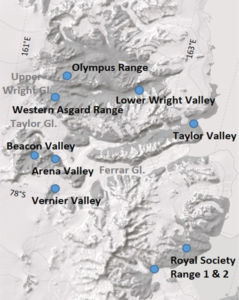
- December 26- January 2 (about 1 week): Return to McMurdo Station, pack samples, return gear, and complete required end-of-season reports. We fly back to the US through New Zealand, spending one night in Christchurch, NZ on the way back.
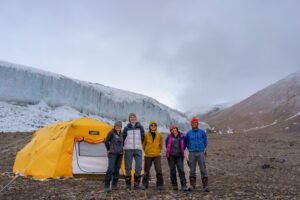
Requirements and Expectations: Below is a list partial list of requirements and expectations for the three students selected to participate in the field work in Antarctica
- Full participation in the research, lecture, and physical training before departure.
- Everyone who goes to Antarctica must be “physically qualified” by the U.S. Antarctic Program (USAP). This includes:
- A medical physical exam, a dental exam, blood tests, and documentation of current vaccinations.
- Additional tests and exams may be required by the medical staff of the USAP.
- Please be aware that some chronic conditions may require additional permission to travel and work in Antarctica, and that some medical conditions will exclude you from participation. If you have questions or concerns, please talk to Dr. Morgan before applying.
- A current passport that is valid until at least July 2024.
- Active participation in all phases of the field work, including training in McMurdo Station and time in the McMurdo Dry Valleys.
- Adherence to all Vanderbilt, USAP, NSF, and Antarctic Treaty rules and regulations while participating in this project.
- We have funding for summer stipends in the summer of 2024 for each participant. This is expected to cover your housing, food, and transportation costs-of-living while participating in research on campus.
- We have additional funding to send students to a conference to present their results.
- We have some funding to purchase some specialized field gear like mountaineering boots. You will be expected to provide some of your own clothing (base layers, mid layers, socks, some light jackets, etc.). You may incur some costs associated with the purchase of additional clothing
- Participation in the laboratory research and completion of an immersion project upon return to campus.
